How to Clean a Motorcycle Windshield
Cleaning your motorcycle windshield isn’t tough, but there are some things you need to know
Taking care of your motorcycle’s windshield is one of the easier maintenance items that all riders face and something handled routinely. As simple as it might be, several common mistakes can cause vision or durability issues, and we don’t want that for a safety-related item like windshields. In this article, we’ll review how to clean your motorcycle windshield properly so you’ll never think twice about getting the job done right.
For all the salty veterans out there, cleaning a windscreen might be old hat…err…helmet, in our case, and performed regularly on longer rides. Here’s the thing: You don’t know what you don’t know. So, let’s wind back the clock back to when we were bright-eyed and bushy-tailed new riders, filled with endless enthusiasm that fueled our desire to learn everything about bikes. This essential maintenance tip is for you, newbies.
The Right Tools for The Job
Motorcycle windshields, often called windscreens, are generally made from two types of plastics: Polycarbonate and acrylic. It’s important to remember because plastic isn’t as durable, and even more critical, as scratch-resistant as glass windshields in your car, which many of us are used to cleaning with any old thing.
For example, that disgusting crud-covered squeegee sitting at the gas station? That shouldn’t meet any part of your bike, let alone the windscreen. However, your car’s windshield is hard enough to deal with it just fine.
Using the right tool for the job matters in these situations because using cleaning products that are too rough will damage the plastic, either by scratching it or removing proprietary protective coatings. This is especially true of polycarbonate windshields that are far more susceptible to scratching than acrylic, which is why it’s common to see manufacturers use coatings to protect clarity. However, polycarbonate is far more impact-resistant than acrylic, and we’ll discuss why that matters in a moment. The good news is that most riders have the right products to clean a windshield.
Always use a cleaning cloth made from the softest material available to you. That usually means a microfiber cloth, terrycloth, or 100% cotton fabric. Above all else, ensure that these fabrics are clean and free of any debris that could scratch or gouge the surface you’re cleaning. Take it from us MOrons – it’s easy to not notice sharp debris in a cloth and end up doing more harm than good.
Avoid fabric or cleaning products that are abrasive in any way. That means brushes, scouring pads (even the backside of a sponge), and paper towels. Now, we bring up paper towels because many can be so coarse that they’ll scratch plastics, though soft variants are on the market. Scratches make windshields hazy, especially as those scratches reflect in direct sunlight, which can impair your vision and lead to dangerous situations.
The first part is having a soft, clean cloth to clean your windshield. The second? Well, just some tap water. Yep, there are no specialty tools here. In fact, many windshield manufacturers strongly recommend that owners only clean cloth with water and, in some instances, a light dish soap.
Say No to Solvents
Many cleaning agents are on the market, but knowing what suits your specific application is challenging. As mentioned, most aftermarket manufacturers advise owners to clean their windshields with only water and light dish soap when dealing with tougher gunk.
The reason is simple: Many cleaning agents include chemicals that react poorly with your plastic windshield, creating cloudiness, weakening it, or destroying coatings. Avoid using cleaners with ammonia (Windex) or petroleum products – if you spot anything like that in the list of ingredients, then put it back on the shelf. Again, plastics are durable but vulnerable to harsh cleaning chemicals.
If you prefer using a cleaning solution, ensure that it is “plastic safe” and formulated explicitly for polycarbonate or acrylic windshields. Yes, we are being a little fussy, but do you want to find out the hard way? Depending on the chemicals used in a cleaner, it could lead to your windscreen becoming brittle and cracking.
How to Clean a Motorcycle Windshield
The easiest way to clean a motorcycle windshield/windscreen is also one of the simplest. Start by soaking your soft cloth of choice and letting it soak on the windscreen for a few minutes to moisten the dried insect guts, dirt, and whatever other road grime you’ve collected. Letting your wet rag give the windshield a good soak is crucial because you’re creating a lubricant to help slide off all that gunk.
While wiping your windshield clean, you’ll want to ensure you wipe in straight lines – think about mowing a lawn. Again, we’re getting a bit nerdy on this one, but doing the classic “wax on; wax off” circular motion can create swirling on a windscreen.
In some instances, you might find that oily substances have made their way onto your windscreen and aren’t wiping off with water alone. Reach for a light dish soap to help break down those oily substances.
Once you’ve thoroughly wiped your windshield clean of debris, grime, and whatever else, it’s time to go over it with a dry cloth. Some windscreen and windshield makers recommend using compressed air to blow the windscreen off to avoid scratches or swirls. That said, don’t get too technical about it. Just wipe things dry and hold off on the elbow grease.
What about when you’re trying to manage scratches, swirls, and other scuffs? For that, you’ll need to find a low-abrasive plastic polish. While these products are naturally formulated for plastic windshields, testing a small corner before moving on to larger sections is always good practice.
That’s all there is to it, ladies and gentlemen. Cleaning your motorcycle’s windshield isn’t a difficult task by any means, but as we’ve discovered, a few things might trip you up along the way. Do you have a helpful content suggestion or technical question? Let us know in the comments below.
Become a Motorcycle.com insider. Get the latest motorcycle news first by subscribing to our newsletter here.
More by Edward Narraca
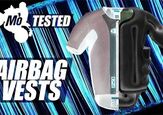

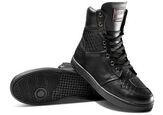

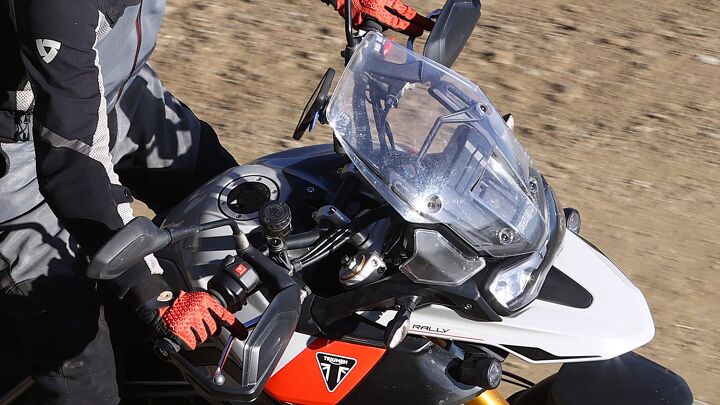
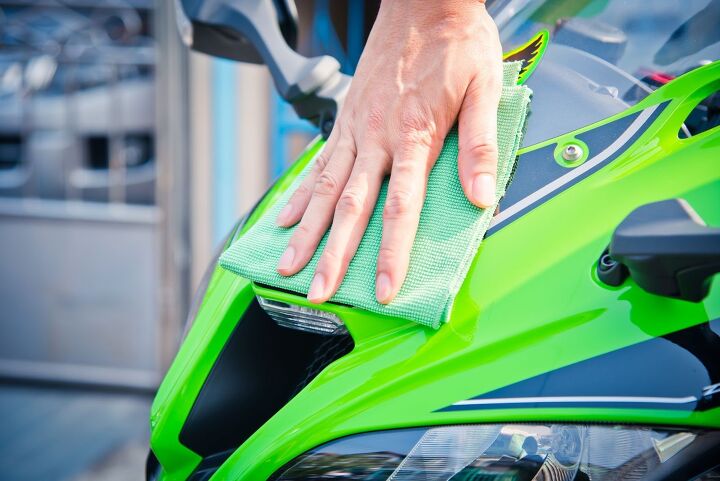
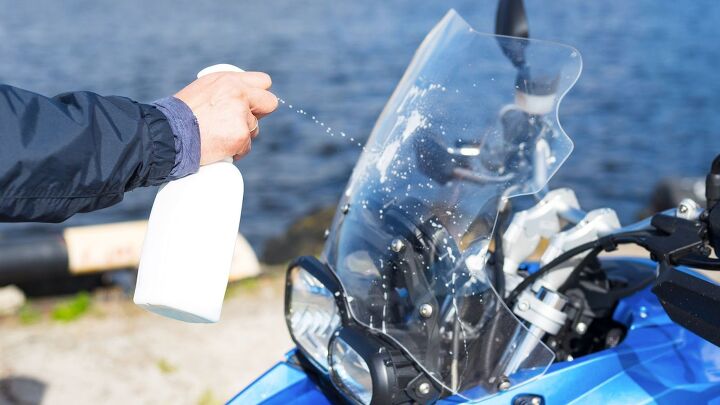
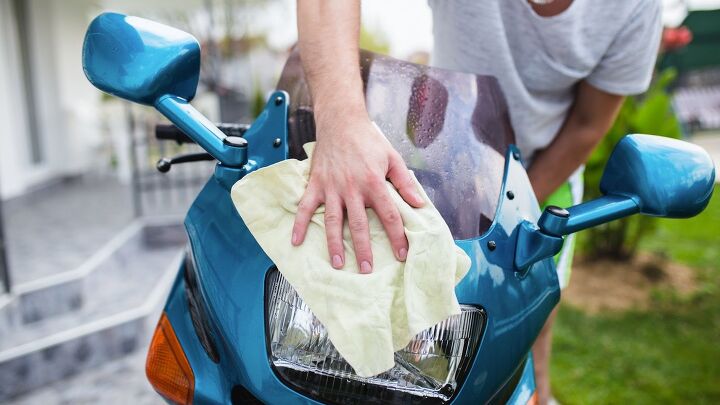
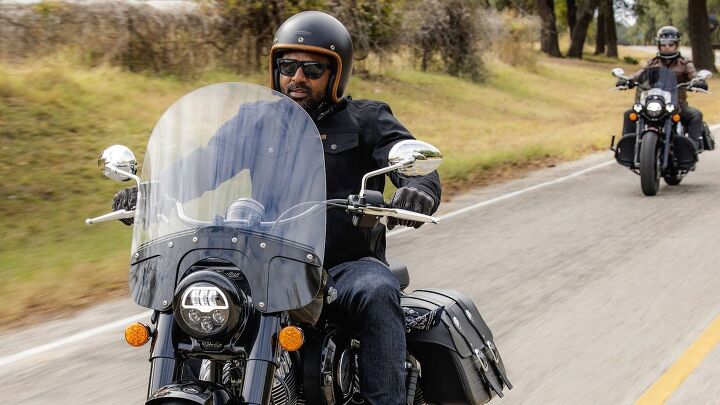



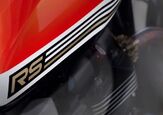


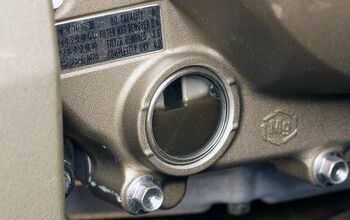
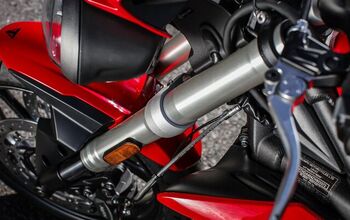
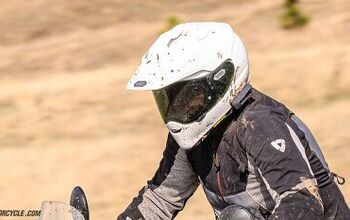
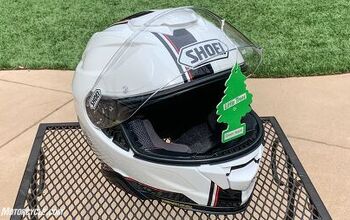
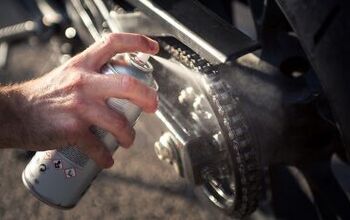
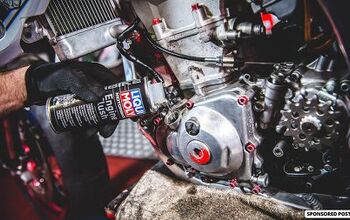






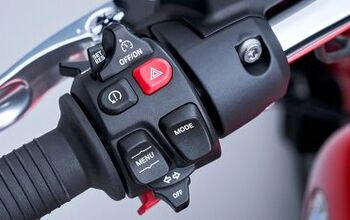
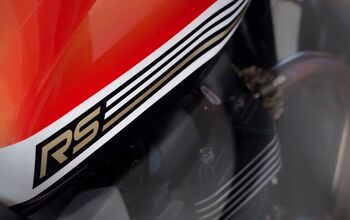
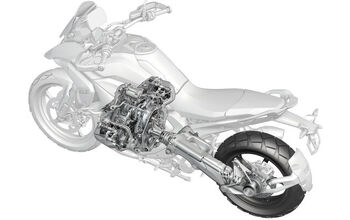


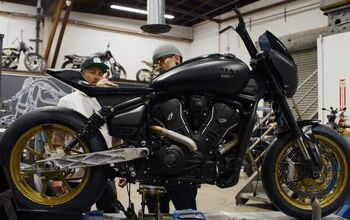
Comments
Join the conversation
Good procedure as stated. However I begin the process with a spray of warm water from the hose as warmed in the sun, to soften and blow off dust and loose particles then proceed with the wet micro-cloth as described. Also, I have found a final spray of "303 Aero space Protectant" to be an effective sealer of those micro scratches that collect dust and micro-debris.
Exactly what is light dish soap? Just a little regular dish soap.